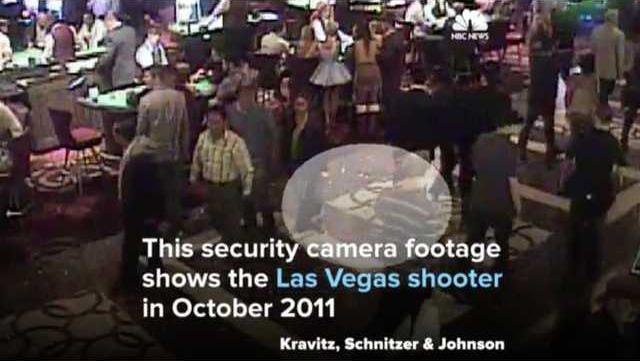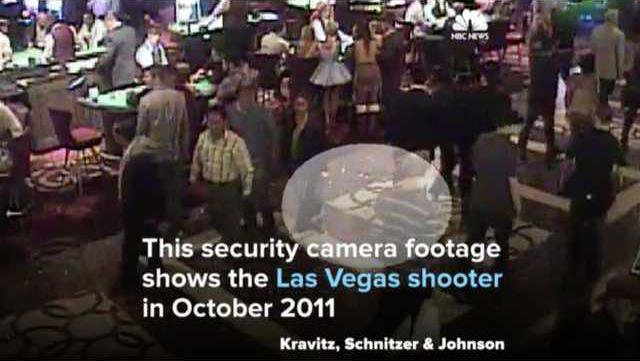Newly released security video shows shooter Stephen Paddock at a Las Vegas hotel and casino in 2011, nearly six years before he opened fire on a crowd and killed 59 people across the street from his room at the Mandalay Bay hotel casino.
According to NBC News, Paddock lost a slip-and-fall lawsuit against a Nevada casino in 2014, and ended up owing the courts $270.
His fall came on Oct. 30, 2011. Security footage from the Cosmopolitan Hotel shows Paddock slipping on the floor. He later claimed to have fallen on a puddle.
He sued the hotel in 2012, asking for $100,000, according to NBC News.
The hotels attorney, Marty Kravitz, said, "They always ask for a lot more than they can get, but he got nothing.
You can watch the security footage here.
Kravtiz said nothing stood out about Paddock at the time.
"This is not a guy that I would have looked at and thought, 'He's going to commit a crime one day.'"
You can read more about the legal case over at NBC News.
Details about Paddock still remains unclear. On Tuesday, The Associated Press reported that the gunman transferred $100,000 overseas and set up cameras inside his hotel room before the shooting.
Investigators also found a computer and 23 guns with him at the hotel, along with 12 bump stock devices that can enable a rifle to fire continuously, like an automatic weapon, authorities told The Associated Press.
Paddocks motive remains unclear, but retired FBI profiler Jim Clemente said the man was likely set off by something.
There was "some sort of major trigger in his life a great loss, a breakup, or maybe he just found out he has a terminal disease," Clemente said.
According to NBC News, Paddock lost a slip-and-fall lawsuit against a Nevada casino in 2014, and ended up owing the courts $270.
His fall came on Oct. 30, 2011. Security footage from the Cosmopolitan Hotel shows Paddock slipping on the floor. He later claimed to have fallen on a puddle.
He sued the hotel in 2012, asking for $100,000, according to NBC News.
The hotels attorney, Marty Kravitz, said, "They always ask for a lot more than they can get, but he got nothing.
You can watch the security footage here.
Kravtiz said nothing stood out about Paddock at the time.
"This is not a guy that I would have looked at and thought, 'He's going to commit a crime one day.'"
You can read more about the legal case over at NBC News.
Details about Paddock still remains unclear. On Tuesday, The Associated Press reported that the gunman transferred $100,000 overseas and set up cameras inside his hotel room before the shooting.
Investigators also found a computer and 23 guns with him at the hotel, along with 12 bump stock devices that can enable a rifle to fire continuously, like an automatic weapon, authorities told The Associated Press.
Paddocks motive remains unclear, but retired FBI profiler Jim Clemente said the man was likely set off by something.
There was "some sort of major trigger in his life a great loss, a breakup, or maybe he just found out he has a terminal disease," Clemente said.





